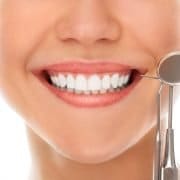How Root Canals Save Your Natural Teeth
People sometimes feel anxious when they learn that they need a root canal in Medina OH. They do not know what to expect and fear that the procedure may be painful. Thanks to advances in dental technology, root canals are no more uncomfortable than any other type of dental procedure. Best of all, root canals save your natural teeth from extraction and the need for replacement teeth, both of which can be expensive procedures.
Why We Perform Root Canals
Each one of your teeth contains pulp and nerves that normally keep the tooth alive. When bacteria invade the tooth through a small crack or due to severe decay, the pulp becomes inflamed and infected. If left untreated, the bacteria can spread through the blood to other parts of your body. Our goal is to restore your oral health and allow you to keep your natural teeth for as long as possible.
Signs You May Need a Root Canal
We encourage you to schedule an exam at Evanko Dental Group of Medina if you are struggling with one more of the symptoms listed below.
- Affected tooth contains a crack or a chip
- Chewing food with the affected tooth is difficult or impossible
- Discolored tooth that looks gray or black due to breakdown of the roots
- Persistent pain that does not respond to over-the-counter medication, hot or cold packs, or other common home remedies
- Sensitivity to hot or cold foods and beverages
- Swelling of the gums.
- Tooth is painful to the touch
- Tooth feels loose
Keep in mind that these symptoms may indicate another oral health issue, such as the need for a filling. Prompt evaluation and treatment is necessary to save your tooth, regardless of the cause of your symptoms.
What to Expect During Your Root Canal
Dr. Jeff Evanko, Dr. Rhea Nicklow, or Dr. Douglas Means start the procedure by numbing the tooth and gums surrounding it. Next, your dentist drills a tiny hole into the tooth to remove the diseased pulp. The last step is to place a crown on top of your tooth to prevent additional infections.
Do you need a root canal in Medina OH? Please reach out to request an exam today.








